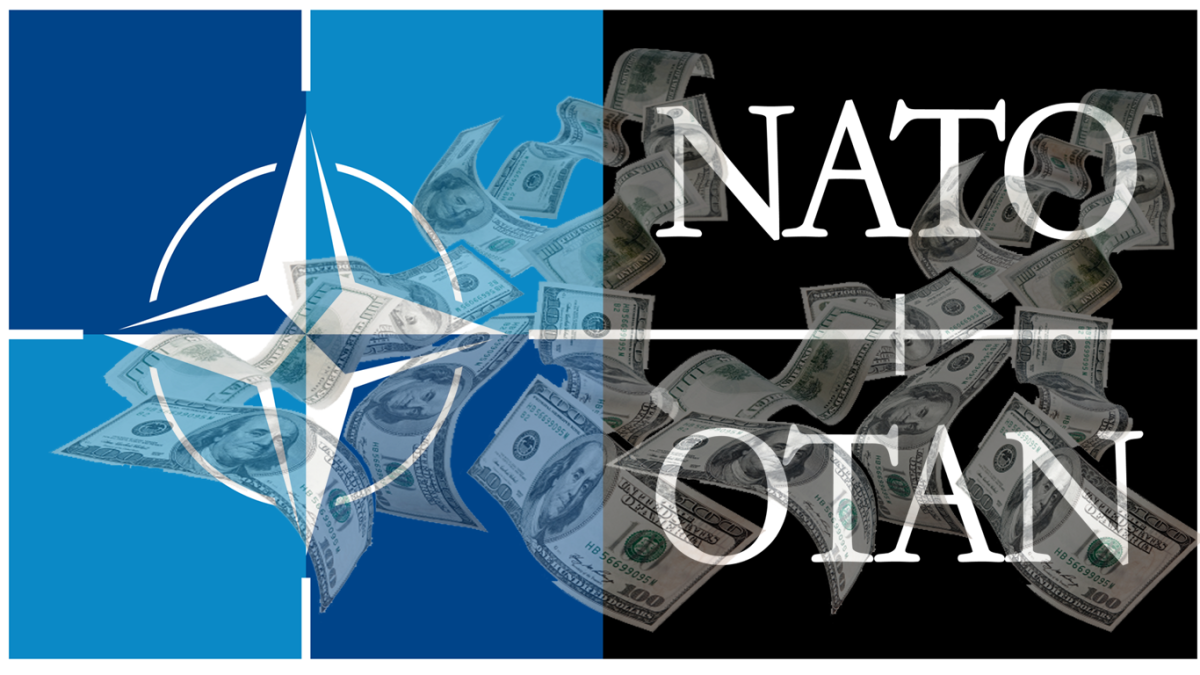President Donald Trump has made a big splash at the annual NATO summit in Brussels this week.
According to Jeremy Diamond of CNN, he opened by referring to our European and Canadian allies as “delinquent.” His frustration stems from the fact he believes the U.S. is paying an unfair share of NATO’s military budget.
Niall McCarthy of Forbes explains 24 of the 29 members states have been spending less than the agreed upon two percent of their respective GDP for defense, with the biggest offender being Luxembourg–paying 0.5 percent of GDP. However, it is only fair to note the pledge of 2 percent spending is not required to take place until 2024.
The U.S. spends 3.5 percent of GDP with Greece, the United Kingdom, Poland and Estonia being the only other members spending at least two percent. Other countries like France, Norway and Bulgaria pay upward of 1.5 percent of GDP, but still fall short of the two percent. Belgium and Spain join Luxembourg in spending less than one percent of GDP.
Each of these underpaying nations reassures the alliance they will reach their spending goal by the deadline. This is not enough for Trump, who believes not only should the nations immediately contribute 2 percent of their respective GDP, but they should increase their spending to 4 percent.
Viewing those numbers, Trump’s frustration becomes more understandable. In fact, according to Nolan D. McCaskill of Politico, former President Barack Obama made a similar, albeit more congenial, plea with NATO members when he was in office.
Trump has reportedly been questioning whether or not NATO is still valuable to the U.S., especially when it seems so unfair.
NATO was founded as the North Atlantic Treaty Organization in 1949, and aimed to provide a system of collective defense whereby members agree to aid one another in the event of an attack by an outside force. It was a powerful deterrent against Soviet aggression and helped ensure Nazi-like annexation of smaller nations was made exponentially more difficult. Though the Soviet Union and Nazi Germany have fallen by the wayside of history, other nations have similarly aggressive desires in Europe.
Enter Russia. What once was the expansionist Soviet Union, now has an egotistical former KGB tyrant at its helm. Aside from having government-sponsored Twitter trolls which post fake news in an attempt to influence the American public’s opinion, Russia has allowed far more menacing activities, states Ben Popkin of NBC news.
According to Krishnadev Calamur, the Russian government sponsors the government in Syria, which allowed ISIS to flourish and commit genocide against its own people.
In addition, Lucy Pasha-Robinson of the Independent expounds upon how Russian government officials illegally annexed parts of the European nations of Ukraine and Georgia. Russia is even known to partner with nations like Iran to work against other U.S. global interests, explains the staff of Reuters.
NATO allies, like Estonia, Latvia and Lithuania, sit at Russia’s doorstep and would be on frontlines of any conflict with the Federation. Fighting a war on both fronts is something extremely difficult for any nation to do, but it has been a historic Achille’s heel for Russia.
With the U.S. bordering Russia on the west with Alaska, an additional option to border them from the east via NATO partners, this makes the U.S.’ strategic position significantly stronger. When contemplating the necessity of NATO, Trump must recognize having close allies as essential in this time of a looming and ominous Russia, which regularly violates international law and defies other nations’ sovereignty.
Twenty-nine countries are members of NATO. Of these countries, nearly all of them were subjugated to brutalities during World War II from the Nazis and the Soviets. These horrific experiences bound us through history, and were pivotal in upholding or achieving common interests.
Our alliance with some of these countries extends far before World War II.
According to David W. Brown of Mental Floss, a sound argument can be made regarding how the U.S. would have never even gained independence if not from help from our French allies, especially General Marquis de Lafayette. The Spanish and the Dutch were also at the forefront of our battle for independence.
The American Revolutionary War was not the only time our European allies have aided us.
On September 12, 2001, the day after 9/11, NATO members committed themselves to deploying their respective militaries in defense of the U.S. Since then, nearly 1,000 European men and women have lost their lives seeking redemption for the U.S. in Afghanistan and across the Middle East. Conversely, we should never forget the thousands of Americans who lost their lives fighting across western Europe during World War II in hopes of never having Europe fall again–something NATO strives to achieve.
According to a poll by Gallup, 80 percent of the American public supports maintaining the alliance, including nearly 70 percent of Republicans.
Additionally, according to Ted Barrett of CNN, the Senate voted 97-2 to pass a resolution reaffirming U.S. support for NATO, making it clear American support for NATO remains high, even if Trump’s support seems to falter.
Americans understand the importance of our role on the global stage, and we understand the impact of having strong and committed allies to help us achieve and maintain these goals.
Europe was pivotal in our past, it remains pivotal in our present and it shall continue to be pivotal in our future. We must devote ourselves to our mutual protection. So, let us support Trump’s demand for NATO members paying their “fair share,” but let us also remember the alliance is more valuable than a few percentage points which are still on par to meet an eventual goal.
Categories:
Is NATO a no-go?
0
More to Discover






